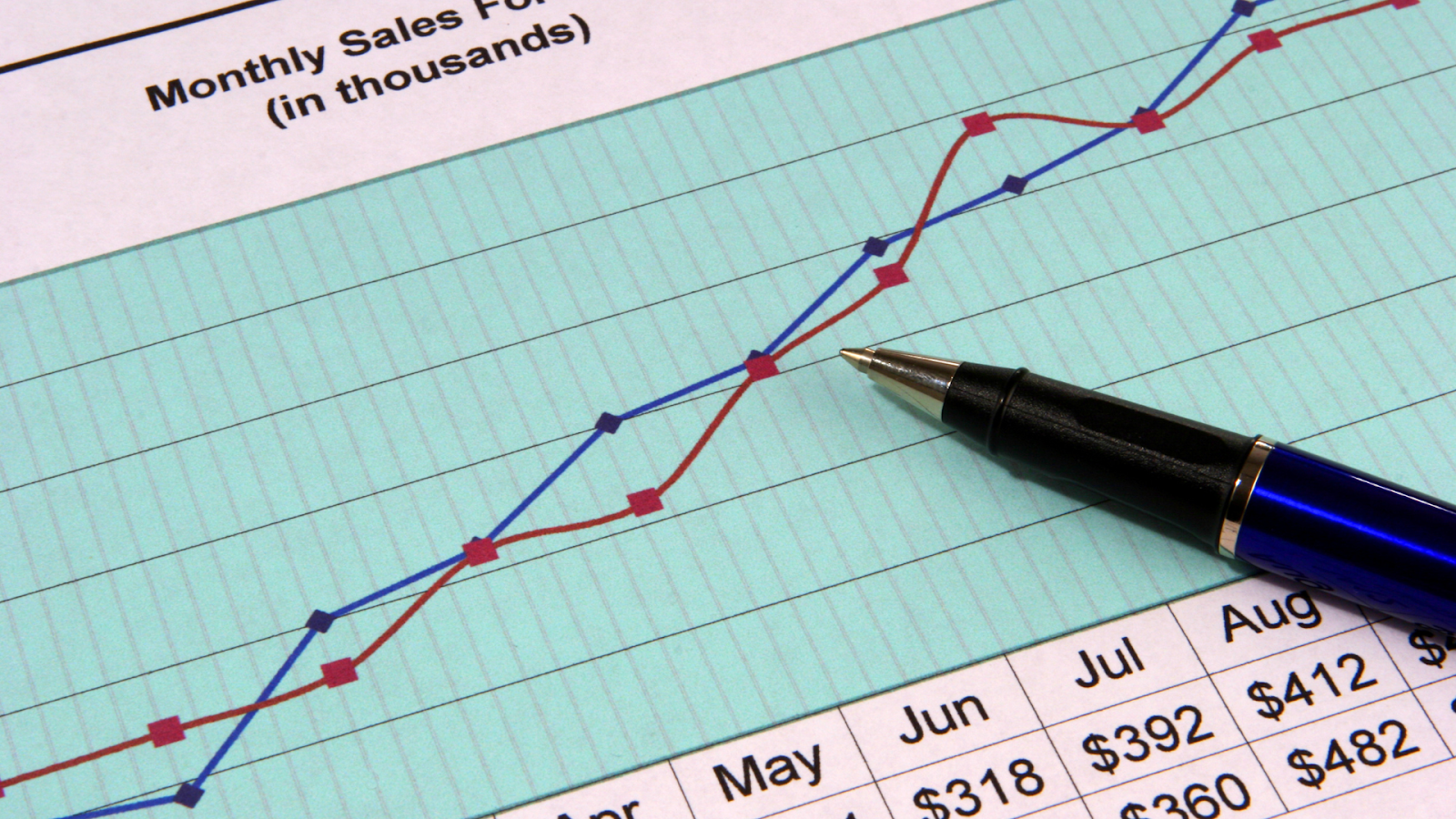
Key Takeaways:
- When it comes to lead generation and appointment setting, firms must prioritize sales forecasting. It focuses into the complexities of this discipline by fusing technical proficiency with real-world knowledge.
- Sales forecasting involves structured analysis of historical sales data, market trends, economic indicators, and more. It acts as a guiding compass for decision-making, resource allocation, and strategic planning across industries.
- GenSales excels in outsourced B2B lead generation and targeted appointment setting through precision cold calling. It offers the expertise to transform possibilities into profits and elevate your sales strategy.
Sales forecasting is one idea that has emerged in B2B lead generation and appointment scheduling services and is unquestionably the key to success. This meticulously crafted article strikes an optimal balance between technical expertise and approachable discourse, unearthing the multifaceted intricacies that underscore the art of sales forecasting. Its purpose is inherently twofold - to enlighten and empower the spectrum of companies diligently scouring the landscape for avenues to elevate their lead generation pursuits by harnessing the prowess of cold-calling firms.
Allow us to stand by your side as your dependable ally in achieving outstanding outcomes and remarkable triumphs. Reach out to our specialists today and unveil the ways in which GenSales can raise the bar for your revenue generation, propelling your business towards unparalleled heights!
What Is Sales Forecasting?
Sales forecasting is a structured and analytical methodology that involves predicting the future sales performance of a business. This process relies on a comprehensive analysis of historical sales data, market trends, economic indicators, and other relevant factors to provide insights into future sales trends and patterns. By extrapolating data from the past, businesses can gain a clearer understanding of what lies ahead, allowing them to make more informed decisions and develop effective strategies.
The importance of sales forecasting cannot be overstated, as it serves as a guiding compass for companies across industries. It aids in resource allocation, budget planning, production scheduling, and inventory management. Moreover, sales forecasting is a fundamental tool for businesses to anticipate market demand and tailor their offerings accordingly.

At GenSales, it's not just about services; it's about catalyzing your revenue journey. Reach out to us now to explore the possibilities of amplifying your business success!
Why Are Sales Forecasts Important?
Sales forecasting holds paramount importance as it provides a roadmap for businesses to navigate their future endeavors. By analyzing past performance and market trends, companies can proactively respond to changing conditions, align their production with demand, and optimize their sales strategies. It serves as a compass that guides decision-making, resource allocation, and goal-setting, enabling businesses to stay agile in a competitive landscape.
Accurate sales forecasting not only aids in predicting revenue but also impacts various facets of operations. It allows for effective budget planning, ensuring that financial resources are allocated wisely.1 Additionally, it helps companies manage inventory levels, preventing overstocking or understocking of products, which directly affects operational efficiency and customer satisfaction.
How Does Sales Forecasting Work?
Sales forecasting operates at the intersection of data analysis and market insights. Businesses gather and analyze data from various sources, including historical sales data, market research, and industry reports. Advanced techniques such as time series analysis and predictive modeling are employed to extrapolate future sales patterns accurately.2
What Are The Benefits Of Sales Forecasting?
Sales forecasting offers a multitude of benefits for businesses aiming to enhance their lead generation and appointment setting endeavors:
Informed Decision-Making
Accurate sales forecasts enable businesses to make well-informed decisions about resource allocation, staffing, and inventory management.
Goal Setting and Performance Tracking
By setting realistic sales targets and comparing them with actual performance, companies can gauge their progress and identify areas for improvement.
Enhanced Resource Allocation
With insights into expected demand, businesses can allocate resources effectively, preventing overstocking or understocking of products.
Strategic Planning
Sales forecasts lay the foundation for strategic planning, helping businesses adapt to market fluctuations and stay ahead of the competition.
Ready to take your business to the next level with Sales Forecasting? Schedule an appointment with GenSales today, and let's boost your lead generation and appointment setting efforts together!
What Factors Affect Sales Forecasting?
Numerous factors come together in the complex world of sales forecasting to influence the precision and dependability of projections. Understanding these factors is pivotal for crafting forecasts that stand the test of time:
Market Trends and External Forces
- Economic Conditions: Fluctuations in the economy can significantly impact consumer spending patterns and, consequently, sales forecasts.3
- Industry Trends: Keeping an eye on industry shifts and emerging trends helps align forecasts with market dynamics.
Historical Data Analysis
- Past Sales Performance: Analyzing historical sales data provides insights into seasonal variations and cyclical patterns.
- Product Lifecycle: Recognizing where a product is in its lifecycle aids in estimating its future performance accurately.
Customer Behavior and Feedback
- Customer Segmentation: Understanding diverse customer segments and their preferences refines sales predictions.
- Feedback Loop: Actively incorporating customer feedback enhances the accuracy of forecasts.
Competitor Analysis
- Competitor Behavior: Studying competitors' actions and their impact on the market aids in making more precise forecasts.4
- Market Share Dynamics: Changes in market share can affect overall industry demand and should be factored into predictions.
How Can Sales Forecast Accuracy Be Improved?
Achieving precision in sales forecasting is an ongoing endeavor. Several strategies can elevate the accuracy of your forecasts:
Data Refinement
- Clean Data: Ensuring data accuracy by removing outliers and errors refines forecast outcomes.
- Granular Data: Utilizing detailed data sets allows for more accurate predictions.
Advanced Analytics
- Predictive Modeling: Employing predictive algorithms and machine learning techniques refines forecast accuracy.
- Data Integration: Incorporating data from various sources enhances the depth of insights.
Collaborative Input
- Cross-Functional Collaboration: Involving different departments and teams provides a holistic perspective for forecasts.
- Sales Team Input: Leveraging frontline insights from sales teams can uncover market nuances.
What Is The Best Sales Forecasting Technique For Start Up Businesses?
Startups navigating the terrain of sales forecasting require techniques tailored to their unique circumstances. The following approaches prove advantageous:
Qualitative Forecasting
- Expert Opinion: Relying on industry experts' insights provides a qualitative basis for predictions.
- Market Surveys: Gathering opinions through surveys offers qualitative data to complement quantitative analysis.
Time Series Analysis
- Historical Patterns: For startups with limited data, time series analysis identifies patterns in available information.
- Trend Extrapolation: Projecting historical trends into the future offers a simple yet effective technique.
Now, on the cusp of a crucial juncture, empower your startup with methodologies that not only recognize the uniqueness of your situation but also bestow upon you the ability to chisel your very own route to triumph. The voyage of your startup commences with these meticulously tailored strategies – grasp them firmly and stride purposefully into a horizon shaped by your individualistic vision and relentless determination. Reach out to us and schedule a consultation without delay and embark on this transformative journey.
What Are The Tools That Are Used For Sales Forecasting?
The landscape of sales forecasting is enriched by an array of tools that empower businesses to make informed predictions:
CRM Systems
- Sales Data Analysis: CRM platforms analyze sales data to generate insights for forecasting.
- Customer Segmentation: Segmentation tools refine predictions by categorizing customers based on behavior.
Predictive Analytics Software
- Statistical Algorithms: Advanced algorithms process data to uncover hidden patterns and trends.
- Machine Learning Models: Machine learning algorithms adapt and improve forecasts over time.
Market Research Tools
- Industry Reports: Research tools offer external data to supplement internal forecasts.
- Competitor Analysis: Monitoring competitors aids in understanding market dynamics.
What Are The Two Methods Of Forecasting Sales?
Two primary methods serve as the bedrock of sales forecasting, each with its own merits and applications:
Qualitative Forecasting
- Subjective Insights: Qualitative methods rely on expert judgment and market insights.
- Market Understanding: These methods excel in uncertain markets where data is limited.
Quantitative Forecasting
- Data-Driven Analysis: Quantitative methods leverage historical data and statistical techniques.
- Numerical Predictions: These methods thrive when there's a robust data history for analysis.
Final Thoughts On Sales Forecasting
As our exploration of sales forecasting draws to a close, the intricate tapestry of predicting future success stands unraveled. From understanding its core principles to navigating the nuances of accuracy and techniques, we've journeyed through the heart of effective sales prediction. In this pursuit of precision, GenSales stands as your dedicated ally. Our mission is to elevate businesses through impeccable lead generation and appointment setting services, enriching your revenue streams.
At GenSales, we don't just offer services; we offer a partnership in your journey towards revenue enhancement. With a keen understanding of the art of sales forecasting, we are poised to align your strategies with insights that matter. Let's start this journey together and write your success story. Get in touch with our team of professionals right now to take advantage of the possibilities that sales forecasting has to offer.
Suggested reading:
- B2B: Solutions That Work Wonders!
- Buyer Journey: Fuel B2B Success With GenSales
- Customer Acquisition Cost: Understanding The Key Metrics For B2B Lead Generation
Frequently Asked Questions About Sales Forecasting
Can sales forecasting be integrated with other business processes?
Absolutely, sales forecasting aligns with inventory management, production planning, and budgeting. Integrated forecasts facilitate coherent decision-making across the business.
Can sales forecasting be applied to different industries?
Absolutely. Sales forecasting is versatile and can be tailored to suit the specific characteristics of various industries.
What data is crucial for accurate sales forecasting?
Historical sales data, market trends, customer behavior, and economic indicators are among the key data points for precise forecasts.
Are there tools that can assist in sales forecasting?
Yes, there are numerous software tools available that automate data analysis and assist in generating reliable sales forecasts.
Can sales forecasting help with budgeting?
Absolutely. Accurate sales forecasts provide insights into future revenue, aiding in budget allocation and financial planning.
How often should sales forecasts be updated?
Forecast frequency depends on market volatility. In dynamic industries, frequent updates—monthly or quarterly—may be necessary, while stable markets may require less frequent updates.
What are the risks of overestimating or underestimating sales?
Overestimating can lead to overproduction and excess inventory, straining resources. Underestimating results in missed opportunities and potential customer dissatisfaction.
Is sales forecasting only for large corporations?
No, sales forecasting benefits businesses of all sizes. It provides direction, aids in resource allocation, and supports strategic planning regardless of a company's scale.
How do I incorporate seasonality into sales forecasts?
Understanding seasonal trends helps adjust forecasts. Historical sales data from corresponding periods and market research aid in accounting for seasonality.
How does global economic uncertainty impact sales forecasting?
Global economic factors influence consumer behavior and demand. Fluctuations can challenge forecasts, necessitating ongoing adjustments to accommodate changing conditions.
Is it possible to outsource sales forecasting?
While businesses typically handle forecasting internally, some consultancies offer specialized forecasting services. However, a deep understanding of your industry and business is essential for accurate predictions.
Source:
- Financial Forecasting in the Budget Preparation Process. (n.d.). Gfoa.org. https://www.gfoa.org/materials/financial-forecasting-in-the-budget-preparation-process
- Time Series Analysis for Business Forecasting. (2016). Ubalt.edu. http://home.ubalt.edu/ntsbarsh/stat-data/Forecast.htm
- Maverick, J. B. (2022, March 17). Which economic factors most affect the demand for consumer goods? Investopedia. https://www.investopedia.com/ask/answers/042815/which-economic-factors-most-affect-demand-consumer-goods.asp
- Farida, I., & Setiawan, D. (2022). Business Strategies and Competitive Advantage: The Role of Performance and Innovation. Journal of Open Innovation: Technology, Market, and Complexity, 8(3), 163. Mdpi. https://www.mdpi.com/2199-8531/8/3/163